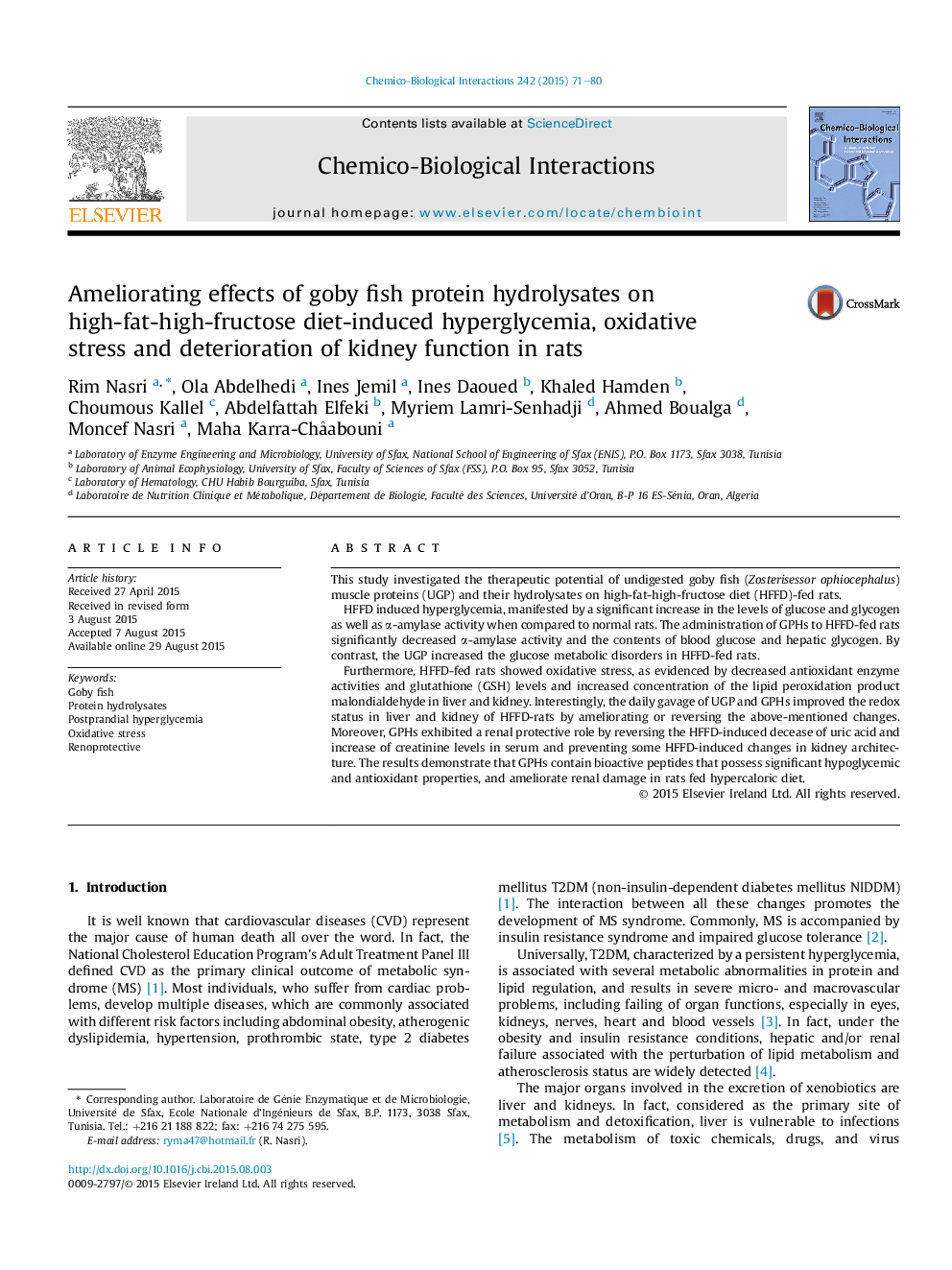| Article ID | Journal | Published Year | Pages | File Type |
|---|---|---|---|---|
| 2579957 | Chemico-Biological Interactions | 2015 | 10 Pages |
•High-fat-high-glucose diet (HFFD) induced hyperglycemia in liver and kidney of rats.•High-fat-high-glucose diet (HFFD) induces hyperglycemia and oxidative stress in liver and kidneys.•GPHs were found to attenuate oxidative stress in HFFD-fed rats.•GPHs as well as undigested goby fish protein (UGP) improved renal function and prevented hyperfiltration of uric acid.•GPHs are candidate ingredients for use in functional foods.
This study investigated the therapeutic potential of undigested goby fish (Zosterisessor ophiocephalus) muscle proteins (UGP) and their hydrolysates on high-fat-high-fructose diet (HFFD)-fed rats.HFFD induced hyperglycemia, manifested by a significant increase in the levels of glucose and glycogen as well as α-amylase activity when compared to normal rats. The administration of GPHs to HFFD-fed rats significantly decreased α-amylase activity and the contents of blood glucose and hepatic glycogen. By contrast, the UGP increased the glucose metabolic disorders in HFFD-fed rats.Furthermore, HFFD-fed rats showed oxidative stress, as evidenced by decreased antioxidant enzyme activities and glutathione (GSH) levels and increased concentration of the lipid peroxidation product malondialdehyde in liver and kidney. Interestingly, the daily gavage of UGP and GPHs improved the redox status in liver and kidney of HFFD-rats by ameliorating or reversing the above-mentioned changes. Moreover, GPHs exhibited a renal protective role by reversing the HFFD-induced decease of uric acid and increase of creatinine levels in serum and preventing some HFFD-induced changes in kidney architecture. The results demonstrate that GPHs contain bioactive peptides that possess significant hypoglycemic and antioxidant properties, and ameliorate renal damage in rats fed hypercaloric diet.
